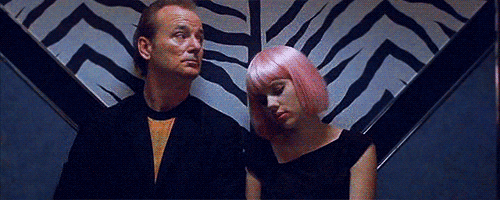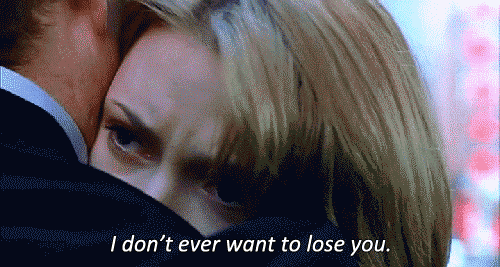The 1990's sitcom Seinfeld proudly described itself as "a show about nothing". In many ways, this same description could apply to the 2003 hit drama Lost in Translation. This deceptively simple tale follows the brief acquaintance of two travelers and not much else. It is a film devoid of action with minimal stakes in which all of the drama is strictly internal. In spite of its simplicity, however, the film remains one of the most poignant films in modern cinema. Find the hidden meaning Lost in Translation.
The story begins with aging Hollywood star Bob Harris arriving in Japan to shoot a whiskey commercial. He experiences a series of comic misunderstandings as he struggles to adjust to culture shock and jet lag. Simultaneously, his brief calls home offer insight into the deteriorating marriage and floundering career that have left in in the midst of a mid-life crisis. Meanwhile, newlywed American tourist Charlotte arrives at the same hotel Bob is staying in with her photographer husband. Despite her youth and new marriage she is revealed to be in the midst of an existential crisis of her own that has her questioning her relationship and her life's direction. After a series of chance meetings the two travelers embark upon an unlikely friendship that will leave them both changed for the better.
Despite its minimalistic plot the film tackles such heady topics as the longing for connection, the search for meaning, and the inevitable approach of mortality with depth and nuance. Through its depiction of Bob's distant relationship with his wife and Charlotte's mismatched marriage, the film aptly demonstrates the importance of making meaningful connections. While both characters are checking the societal boxes of being married neither are fulfilled by their relationships. Ironically, both find greater connection in their brief interactions with each other than in their marriages. In this way, the film highlights the importance of true connection in its portrait of two people who are at their loneliest when they are around others. Similarly, the film explores the vital need for meaning by focusing upon the lack of meaning in its characters' lives. While both Bob and Charlotte are leading existences that are successful on paper, neither feels any passion or sense of purpose. As a result, while both are alive neither is truly living. The need to live a purposeful existence while we can is further emphasized by the film's depiction of Bob's struggle to overcome his mid-life crisis and Charlotte's efforts to come to terms with entering adulthood. Eve as it meditates upon these weighty topics the film still offers laughs and what just might be love along the way. Lose yourself in the magnetic melancholy of Lost in Translation.
The film is brilliantly brough to life thanks to the stellar work of its cast. Anna Faris is hilariously vapid as Charlotte's husband's celebrity client, Kelly. Catherine Lambert is equal parts sultry and pathetic as the unnamed lounge singer with whom Bob has a one-night-stand. Giovanni Ribisi perfectly captures Charlotte's husband, John's, desperate need to belong. Even in the midst of adept supporting performances the film belongs to Bill Murray and Scarlett Johansson as Bob and Charlotte. Murray showcases his signature dry humor but infuses with with just enough melancholy to hint at Bob's inner turmoil. Similarly, Johansson perfectly conveys the naivete, confusion, frustration, and anxiety of young adulthood with intelligence and charm. Together, the two share a surprising chemistry and make for a compelling, if unusual, pairing.
At once a unique slice of life and a universal meditation upon life and love Lost in Translation continues to stir the mind and heart. The script aptly blends humor with raw emotion to relate a poignant tale that anyone who has ever felt lost will relate to. The performances bring the characters to aching life. Lose yourself in the beauty of Lost in Translation.




No comments:
Post a Comment